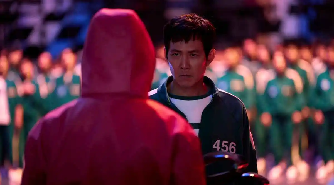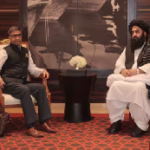Squid Game Season 2, a global success, is now facing backlash from Vietnamese audiences due to a controversial dialogue. The Netflix hit has sparked calls for a boycott after a particular exchange between characters in one of the episodes. The incident has led to significant social media outrage, with viewers criticizing the show for allegedly glorifying South Korean soldiers who served in the Vietnam War.
The Controversial Dialogue
The controversy unfolded during a scene where Kang Dae-Ho (Player 388), portrayed by actor Kang Ha-Neul, shares details about his family’s military history and the reasons behind his career as a mariner. In the conversation, Kang Dae-Ho refers to his father as a “Vietnam war veteran,” to which another character responds, “Your father must be an honorable man.”
This dialogue immediately caught the attention of Vietnamese viewers, who accused the show of romanticizing South Korean involvement in the Vietnam War. The exchange, set against the backdrop of a gripping survival thriller, was seen as insensitive by many who felt that it downplayed the atrocities of the war.
Vietnamese Boycott Demands
What began as online backlash quickly escalated into widespread calls to boycott Squid Game 2. Fans took to social media to demand that Netflix remove the controversial scene, citing the need for better cultural sensitivity. Some even requested that the streaming platform re-evaluate the portrayal of the Vietnam War in the series to avoid further offense.
The outrage has now caught the attention of authorities in Vietnam. According to reports from the Vietnamese news outlet Lao Dong, the Vietnam Cinema Department, which monitors the country’s film regulations, is investigating the show to determine whether it violates any local film laws. If the investigation finds any issues, it could lead to the removal of Squid Game 2 from Netflix in Vietnam, effectively barring the show from the country.
As the controversy continues to unfold, it remains to be seen whether Squid Game 2 will be banned or censored in Vietnam. The growing demand for the boycott highlights the sensitivities surrounding historical representations and cultural perceptions in international media.



